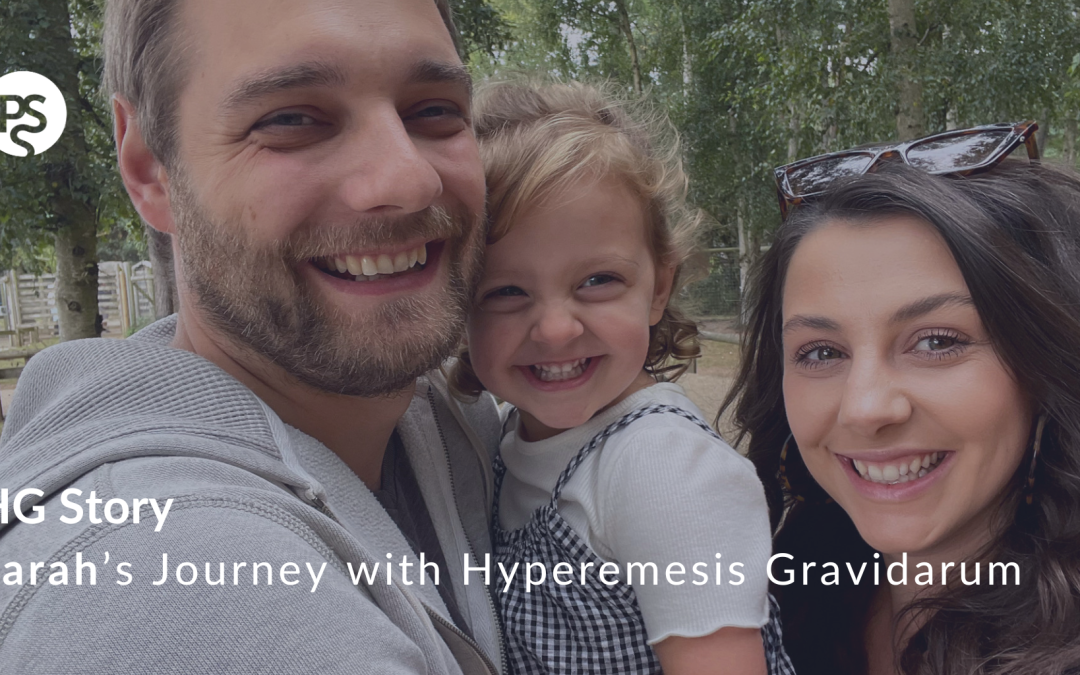trigger warning - termination
Sarah Goddard shared her story of battling hyperemesis gravidarum (HG), a condition that devastated her health, family, and dreams for the future. Her experience highlights the severe physical and emotional toll of HG and the challenges of navigating a healthcare system that often fails to support those suffering.
Before my experience, I had never even heard of HG. I was sick throughout my first pregnancy, but my second pregnancy was a whole new level. By just seven weeks, I was admitted to hospital, placed on fluids for a day, and sent home with new medication. Things rapidly got worse from there.
I couldn’t keep any food down—not even the plain meals I’d tolerated before. I was sent for an early scan to rule out complications or multiple babies. Everything looked fine, but my symptoms only intensified. My GP suggested second-line medications but warned me of the risks: a slightly increased chance of facial deformities for my baby, slightly increased risk of heart problems for me, or nervous system issues. I sat in tears, trying to decide. I felt I had no choice but to try one, but it didn’t work. I ended up back in hospital.
The hospital care left me feeling lost and unsupported. I spent hours in A&E while getting worse, was moved between incorrect wards, and landed in a unit where nurses admitted they weren’t trained in HG care. No one explained what HG was. I only realized the condition had a name when I saw it written on some notes.
I struggled to keep anything down, even water. Sometimes my body would try to vomit with nothing left in my stomach, leaving me retching acid and even blood. A nurse told me, “it’s not that much” after I threw up, and a doctor suggested, “even a bag of crisps a day is enough.” Another doctor dismissed me entirely when I expressed my struggles, telling me, “What are you doing that for?” when I mentioned termination.
At home, things weren’t any easier. I was unable to move without being sick. I tried sucking on ice cubes to stay hydrated, but it wasn’t enough. My mum, who stepped in to care for me and my daughter, tearfully told me she felt like she was watching me die. My husband and I had to make an impossible decision. Despite wanting this baby so much, we couldn’t see a way forward. At 10 weeks, we went through with the termination.
The lack of care and understanding throughout my experience was heartbreaking. When I was finally referred to a maternity ward and met a midwife who truly listened, she told me I had been mismanaged, under-medicated, and under-hydrated. Knowing this after everything I’d endured left me feeling numb.
If I had been better supported, I wonder where my physical and mental health would have been—and if I would still be expecting a very wanted baby.
HG shattered my heart and initially changed my plans for a bigger family. I always thought I’d have two children, and at first, we decided not to try again. I adored having a sibling growing up, and it was incredibly hard to come to terms with the fact that my daughter wouldn’t have one. But after grieving—not only for the baby we lost but also for the family I thought we’d have—and doing a lot of research to understand the condition better, we are open to the possibility of trying again.
Sarah’s story is a poignant reminder of the need for greater awareness, better care, and more compassion for those enduring HG. Her strength and resilience in the face of unimaginable challenges are a testament to her love for her family and her fight to survive.
At Pregnancy Sickness Support, we are deeply concerned by the way Sarah’s treatment was handled, particularly the way medication options were presented to her. Highlighting potential risks without providing balanced, evidence-based reassurance about the safety and effectiveness of these treatments is not only unhelpful but adds unnecessary distress to an already overwhelming situation.
In this situation the Doctor should have informed Sarah of the risks of NOT taking medication, and what excessive vomiting or debilitating nausea could do to negatively impact her health.
Ensuring sufferers receive clear, compassionate, and accurate information is essential to empowering them to make informed decisions about their care.
Stories like Sarah’s highlight the urgent need for better education and understanding among healthcare professionals.
If you would like more information about medications prescribed for pregnancy sickness and HG please click here.

